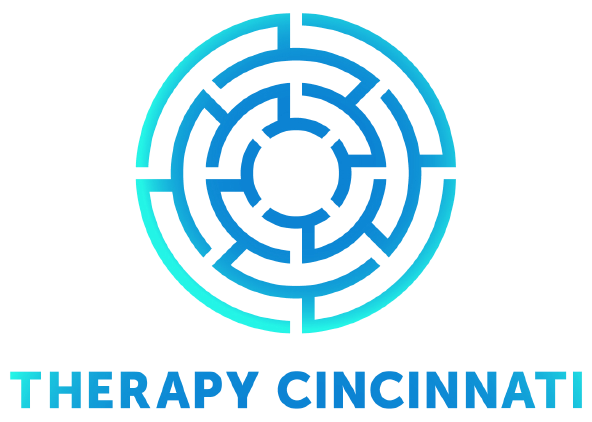Anxiety—as unpleasant as it can be—is a very real and completely normal part of the human experience. It’s our natural defense to potential threats or dangerous situations. And while most of us view anxiety as an unpleasant emotion, it’s also one of the biggest reasons why people seek therapy.
Ultimately, anxiety serves a valuable purpose in our lives. So, how can you tell the difference between normal anxiety and when you could benefit from therapy?
What's Normal for All
Anxiety can be a sign that something is important to you. For example, if you’re worried about an upcoming exam, it’s likely because you care about your studies and want to do well. If you didn’t, you probably wouldn’t be as worried or stressed about it.
Think of anxiety as your body's alarm system. Biologically speaking, it's helped the human race survive for a long time. And because it's been around for so long, it's released very quickly with little to no effort, making it, in many ways, automatic.
When we're in danger or at risk of potential harm, we don't have to think, "I should probably protect myself," thanks to this response. The alarm system goes off, activating our fight-flight mode. The increased heart rate, loss of appetite, and difficulty breathing are all designed to help us respond to that danger if we need to flee, freeze, or fight the potential "threat."
If the body perceives something as potentially threatening, this response gets activated whether we want it to or not. The main difference between ordinary and problematic anxiety is between the source and the intensity of the experience.
When Does Anxiety Become a Diagnosis?
Despite its beneficial purpose, it doesn't mean anxiety doesn't have its downside. As humans, we also have vivid imaginations. Our ability to think and use our imagination can ultimately lead to an excess of "what if" or worst-case scenarios if we let it.
Think about it this way: if you have a first date, or you're preparing for a big speech at work, you're probably going to think about the way those experiences are going to turn out. One thought like "I'm going to blow it" or "this is going to go wrong" can quickly turn into "I have to cancel" or "I'm going to quit my job."
This is the downside to our creativity and imagination. Going down that negative spiral of thoughts tells the body that "this is happening"-even though an adverse outcome hasn't occurred. Thus, the body's natural alarm system becomes activated even though there's no real threat present.
Over time, our anticipation and expectations of things to go wrong can turn into avoidance. For example, if we expect the first date to go badly, we may avoid going out or meeting new people altogether. On the other hand, the same worry or expectation takes us out of the present moment. If you're worried about every word you say on the date or overthink your outfit choice, your anxiety ultimately prevents you from connecting and engaging with that person. These decisions interfere with our ability to build meaning and joyous lives.
When To Consider Anxiety Therapy
Anxiety can potentially interfere with our daily lives. If we start avoiding certain people, places, or situations because of our consistent worry, anxiety becomes problematic and may become an anxiety disorder.
Anxiety plays a role in the following conditions:
Generalized Anxiety Disorder: People with a generalized anxiety disorder (GAD) may predict disaster and be overly concerned about money, health, family, work, or other issues.
Panic Disorder: Panic attacks are sudden periods of intense fear that may include shaking, sweating, shortness of breath, numbness, or a feeling that something terrible is about to happen. Panic attacks can occur at any time, even during sleep.
Phobia: extreme or unreasonable fear of a specific thing, circumstance, or activity.
Social Anxiety Disorder: intense and excessive fear of being judged by others in social situations.
Obsessive-Compulsive Disorder: OCD involves recurrent thoughts and behaviors that can be both challenging and tiring for those affected by it.
Post-Traumatic Stress Disorder (PTSD): anxiety following a traumatic event.
Therapy For Anxiety
Although there are multiple therapeutic approaches in treating anxiety, these approaches' ultimate goal is to help you understand, manage, and overcome your anxiety. Your treatment is tailored to meet your specific needs and diagnosis.
Cognitive Behavioral Therapy (CBT): CBT helps people identify and change destructive or disturbing thought patterns that influence behavior and emotions.
Exposure Therapy: ET is one the most common ways of treating anxiety and phobias. Your therapist will work with you to overcome specific situations that cause anxiety or panic by gradually exposing you to them.
Eye Movement Desensitization and Reprocessing: EMDR is usually used to help people recover from trauma. By utilizing sensory input such as eye movements, you can essentially reprogram your brain and heal from the emotional distress you've experienced in the past.
Somatic Experiencing works to improve the mind-body connection. SE is a mindful approach to increasing body awareness, regulate emotional and physical reactions, and gain insight into your anxiety or traumatic experiences.
Bottom Line
Anxiety disorders are highly treatable and can be managed with medication, psychotherapy, or a combination of the two. For those who experience mild symptoms, treatment may not be necessary.
Working with a therapist can help you learn tools and strategies to cope with symptoms and ultimately live a happy, healthy life.




















